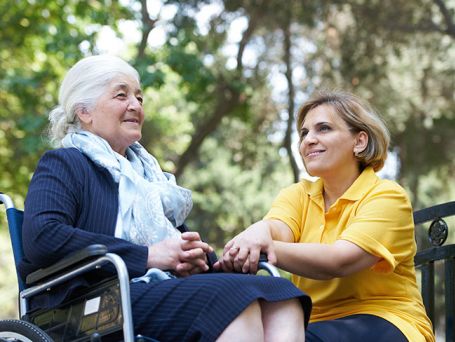Take A Look At Four Key Mental Health Gains That A Carer Can Provide:
1. Companionship
From assisting with basic activities of daily living to completing tasks that someone with limited mobility or frailty is unable to do themselves, the role of a Home Carer in providing physical assistance is clear-cut. What may be less easy to see, although the benefits are as important, are the mental health benefits which are provided through domestic care.
2. Motivation
It’s often the case that when someone is living alone, particularly when completing everyday tasks is a challenge, there is a tendency to “give up”.
A Home Carer can help motivate vulnerable people to keep attempting tasks to the best of their ability, in order to preserve what strength and ability they have for as long as possible, at the same time as providing input where necessary to ensure the tasks are completed safely and to an acceptable standard.
3. Intellectual Stimulation
Engaging in meaningful conversation, completing puzzles, doing jigsaws and even commenting on a radio programme are all ways that a carer can engage with an older person in order to “keep the brain ticking over”.
4. Signs Of Mental Ill-health Are Picked Up Early
Depression, anxiety or dementia can often be missed in the early stages, when appropriate treatment could have real benefit. A Home Carer can pick up on signs that all may not be well, enabling timely professional assistance to be sought.
Although carers have a key role to play in the maintenance of physical health, they are also some of the main facilitators of good mental health, as well as often the person who notices when all is not well. For these reasons, domestic care providers are a vital part of any older person’s well-being team.
